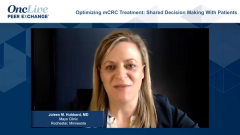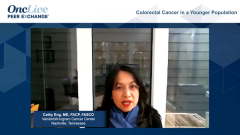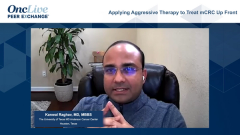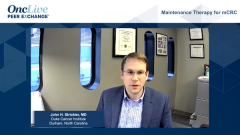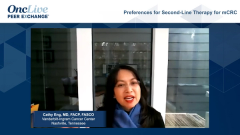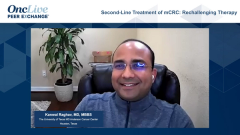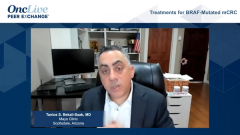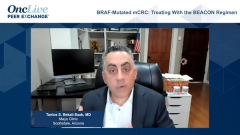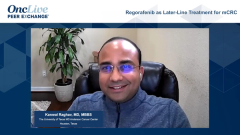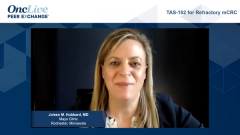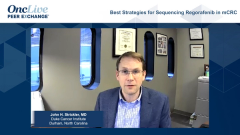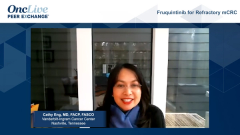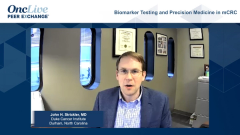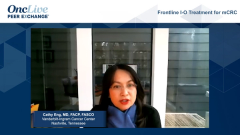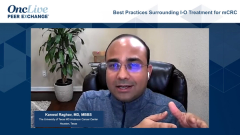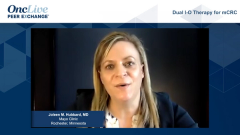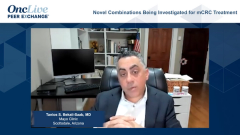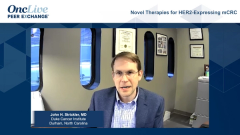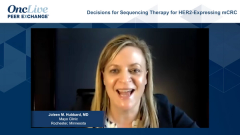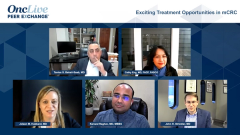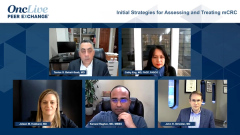
Maintenance Therapy for Metastatic CRC
Recommendations regarding the selection, initiation, and length of maintenance therapy to help manage cases of metastatic colon cancer.
Episodes in this series

Tanios S. Bekaii-Saab, MD: Let’s discuss the whole concept of maintenance therapy. Throughout the years, a number of studies consistently show that giving chemotherapy until progression may not be the wisest decision, at least intensive chemotherapy. What do the data tell us? What do you do typically for your patients? How long do you treat them, and what type of maintenance therapy would you consider? Do you ever consider chemotherapy-free intervals, and what does that mean?
John H. Strickler, MD: This is something we grapple within the clinic, even today, despite having all of this evidence. The basic principle here that we follow is that we know patients will reach their point of maximum response with first-line chemotherapy, generally by about month 3 to month 4. After that, the responses tend to level off.
At the same time, as you go past month 4 on your frontline combination chemotherapy, the toxicity can build up, specifically for the oxaliplatin-based regimens. We can see worsening neuropathy, which in some cases can be disabling and cause quality-of-life issues. There’s no evidence that continuing a combination chemotherapy approach past that initial point of maximum response improves overall survival.
Right around month 4, we take a step back, and we say, “How are you doing? How are you feeling? What’s the scan showing?” If a patient has achieved some degree of benefit from that regimen, we oftentimes are thinking about peeling off that aspect of chemotherapy that’s causing the patient the greatest quality-of-life issues. If a patient is receiving oxaliplatin, that would be something that is routinely discontinued, right around month 4. Rarely do I continue it past that point, though in some rare cases I might consider it.
But additionally, there are some patients who just need a break period, from everything. Maybe it’s the travel to the cancer center, the emotional demands of coming in, they want to go on vacation, or be with family; it is also OK for that patient to take a chemotherapy holiday and take a break. It does mean that that patient is more likely to start second-line chemotherapy sooner. On the other hand, there would not be a major impact on overall survival for a person to take a break or a holiday, for a period of time.
Transcript Edited for Clarity


